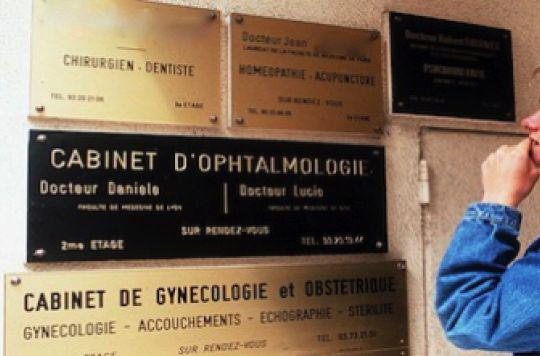In a press release, the CNOM said it was “worried” about the occupational health orientations of the El Khomri bill. He plans to eliminate the visit upon hiring.
Launched at the initiative of the International Labor Organization (ILO) and celebrated this Thursday, April 28, the World Day for Safety and Health at Work aims to promote the prevention of occupational accidents and diseases throughout the world. This 13th edition highlights the collective challenge of stress at work.
In France, the social cost of stress (health care costs, those linked to absenteeism, cessation of activity and premature death) was estimated in 2007 at between 2 and 3 billion euros (INRS and Arts et Métiers study ParisTech). “This estimate is most likely well below the actual cost,” further warns theNational Institute for Research and Security (INRS).
In this already tense context, many are worried about the “El Khomri” bill which would threaten occupational medicine. The employees of the tertiary sector and the encradrement should in fact no longer be able to benefit from it. And after the doctors’ unions, it is the National Council of the Order of Physicians (CNOM) which expresses its dissatisfaction.
A distorted profession
In a statement released Wednesday, the CNOM is “worried” about the directions taken in terms of occupational health by this labor law reform project. “The disappearance of the link between the employee and the occupational physician upon hiring and the reorientation of the duties of the occupational physician towards the assessment of the aptitude of employees applying for positions at risk and positions involving safety third parties distort the profession of occupational physician,” he wrote.
In a recent interview with whydoctor, Dr. Bernard Salengro, president of the union of occupational physicians, feared in particular that “new illnesses” at work would no longer be diagnosed, such as burnout, harassment, psycho-social risks, and the effects not yet recognized. certain chemicals (nanomaterials, pesticides, radiation, etc.).
CNOM proposals
The Order does not hesitate to speak about the bill of a “drift towards a medicine of control” which “alters the link essential to the confidence between each employee and his occupational doctor”.
Finally, the Council recalls that it already measures through its work on medical demography, the decline in the number of occupational physicians. For this reason, it promotes, on the contrary, “innovative solutions such as the establishment of the status of medical collaborator and multidisciplinarity”.
The CNOM also indicates that it has proposed amendments to parliamentarians “allowing occupational medicine to be restored to its core business: contributing, in a preventive mission, to preserving the health of all employees”. Let’s see if the national strike organized this Thursday against the El Khomri law will be likely to move the lines of the government.

Launched at the initiative of the International Labor Organization (ILO) and celebrated this Thursday, April 28, the World Day for Safety and Health at Work aims to promote the prevention of occupational accidents and diseases throughout the world. This 13th edition highlights the collective challenge of stress at work.
In France, the social cost of stress (health care costs, those linked to absenteeism, cessation of activity and premature death) was estimated in 2007 at between 2 and 3 billion euros (INRS and Arts et Métiers study ParisTech). “This estimate is most likely well below the actual cost,” further warns theNational Institute for Research and Security (INRS).
In this already tense context, many are worried about the “El Khomri” bill which would threaten occupational medicine. The employees of the tertiary sector and the encradrement should in fact no longer be able to benefit from it. And after the doctors’ unions, it is the National Council of the Order of Physicians (CNOM) which expresses its dissatisfaction.
A distorted profession
In a statement released Wednesday, the CNOM is “worried” about the directions taken in terms of occupational health by this labor law reform project. “The disappearance of the link between the employee and the occupational physician upon hiring and the reorientation of the duties of the occupational physician towards the assessment of the aptitude of employees applying for positions at risk and positions involving safety third parties distort the profession of occupational physician,” he wrote.
In a recent interview with whydoctor, Dr. Bernard Salengro, president of the union of occupational physicians, feared in particular that “new illnesses” at work would no longer be diagnosed, such as burnout, harassment, psycho-social risks, and the effects not yet recognized. certain chemicals (nanomaterials, pesticides, radiation, etc.).
CNOM proposals
The Order does not hesitate to speak about the bill of a “drift towards a medicine of control” which “alters the link essential to the confidence between each employee and his occupational doctor”.
Finally, the Council recalls that it already measures through its work on medical demography, the decline in the number of occupational physicians. For this reason, it promotes, on the contrary, “innovative solutions such as the establishment of the status of medical collaborator and multidisciplinarity”.
The CNOM also indicates that it has proposed amendments to parliamentarians “allowing occupational medicine to be restored to its core business: contributing, in a preventive mission, to preserving the health of all employees”. Let’s see if the national strike organized this Thursday against the El Khomri law will be likely to move the lines of the government.
.















